I got a really interesting e-mail from a reader/writer the other day, and I haven't been able to stop thinking about it. This writer was involved in a debate with some of her critique partners about the importance of following certain "rules" when writing fiction. The writer who e-mailed me argued that there are no hard-fast rules anymore for writing fiction that will: a) interest an agent or publisher or b) be accepted by readers. She asked me what I thought, since BEAUTIFUL CREATURES apparently broke several of these rules (who knew?).
Here are the rules BC broke (although I'm sure I've personally broken more rules in my life):
- Editors hate debut novels with a preface.
- Your first YA novel should be under 80,000 words. *
- Never start the story start with a dream.
- Start with a lot of action.
* We really broke this one!
So what can I say when our book: has a prologue, is well over 100,000 words, stretches out slowly, and chapter one opens with a dream? I'd love to say that I knew all about these rules & pulled the sheet of paper they were written on out of my typewriter and tore them up. The truth? I had no idea they existed. When you co-write a book on a dare from seven teenagers, who are riding you nightly for chapters, there's no time to do a lot of research on how to write a book. And when you're writing a story for seven teenagers and the idea of publishing it (or even finishing it) hasn't crossed your mind, you aren't worried about whether or not you're doing it right.
I thought about my students and how badly some of them want to write, but how terrified they are to try. I would argue that a lot of adults who are aspiring writers feel the same way, and I can understand why. How can you start writing if you're afraid you may do it wrong? As if there's one way to write — some magical formula that will result in the perfect book. IF YOU FOLLOW THE RULES.
I did a little research, and I found a few more rules:
1) Learn about the craft of writing. You can do this by reading books for beginning writers and taking writing classes.
What does this even mean? Learn about the craft of writing? Which part — the discipline of actually writing, the paralyzing fear that no one will want to read anything you write, or are we talking about things like grammar and plot structure? And I'm relieved to know that I will not have any competition from inferior writers who do not have an MFA or a bookshelf full of dog-eared books about the craft of writing (Oh, wait! I'm one of those inferior writers. Damn.) I'm not saying there's anything wrong with getting your MFA or reading great books about writing. What I'm saying is you don't have to do either of these things to be a writer, or write a book people will want to read.
2) Write every day.
OK. This is a big one. I don't write every day. Period. When Margie and I draft, we write constantly for about 12 weeks. And by constantly, I mean 8-12 hours, 7 days a week. Then we may not write a word for a month. Some writers couldn't stand to write that way. Clive Barker told me that he writes first thing in the morning, every single day, until he hits a certain page count. Ray Bradbury wrote FAHRENHEIT 451during his lunch breaks. You don't have to write every day. You just have to write. And you have to figure out what works for you, not me, or Clive Barker, or Ray Bradbury.
3) Make an outline.
Margie and I do outline — on white boards with colored dry erase markers that smell like grape and strawberry. We like to start out that way. Do we always stick to our outline? No way. Is it the only way to do it? Hardly. Some writers type up their outlines, others outline on index cards, and some — wait for it — DON'T outline at all! Outline if it helps you. Don't it doesn't. Outline on your hand, your window, your dog, or not at all.
4) Be aware of what is popular in your genre.
This one is tricky. Are you supposed to know what's popular so you can write something that will fit into that particular box of knights or wizards or home shoppers? I'm hoping whoever came up with this rule was suggesting the opposite. I want to know what's popular so I can write something different. If everyone is writing about snake charmers, I want to know because I'm going to write about pickpockets or basket weavers or cobras. And the good news is readers don't want you to write about anything except the story you have to tell. The one YOU want to tell. Even if it's about the cobra.
The bottom line is the rules are — there are no rules. At least none you have to follow. Write what you want, the way you want to write it. Trust your voice. Don't try to be like anyone else or sound like anyone else.
And if you need a little inspiration, here are a few of my favorite rule breakers:
Eleanor Roosevelt Flannery O' Connor Jackson Pollock
Queen Elizabeth I Sir Issac Newton
"I have written a great many stories and I still don't know how to go about it except to write it and take my chances…"
– John Steinbeck

 a #1 New York Times, USA Today, and international bestselling author and comic book writer. As an award-winning, Bram Stoker Award-nominated young adult author of 12 novels and graphic novels, she has been published in 51 countries and 38 languages and her books have sold more than 10 million copies worldwide. Kami’s best known works include the Beautiful Creatures series, Teen Titans: Raven, The X-Files: Agent of Chaos, The Lovely Reckless, Broken Beautiful Hearts, and the DC Black Label comic Joker/Harley: Criminal Sanity. She is also a cofounder of the Kid Lit book festival YALLFest.
a #1 New York Times, USA Today, and international bestselling author and comic book writer. As an award-winning, Bram Stoker Award-nominated young adult author of 12 novels and graphic novels, she has been published in 51 countries and 38 languages and her books have sold more than 10 million copies worldwide. Kami’s best known works include the Beautiful Creatures series, Teen Titans: Raven, The X-Files: Agent of Chaos, The Lovely Reckless, Broken Beautiful Hearts, and the DC Black Label comic Joker/Harley: Criminal Sanity. She is also a cofounder of the Kid Lit book festival YALLFest.
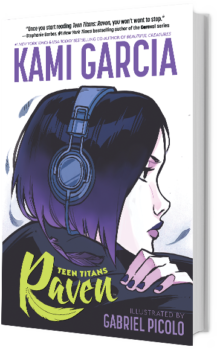
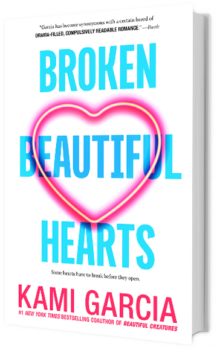
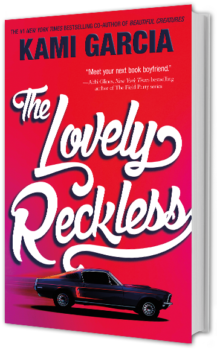
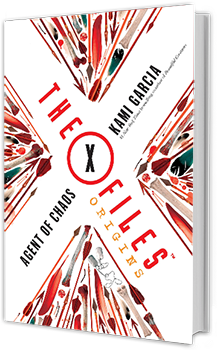
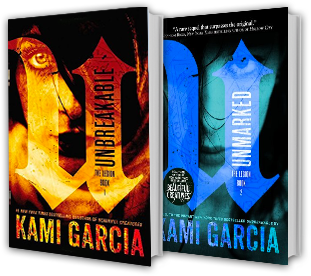
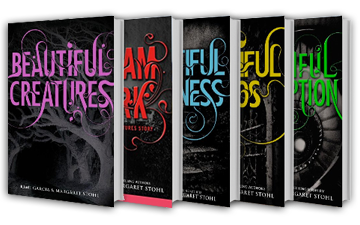
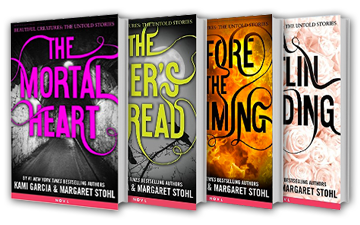
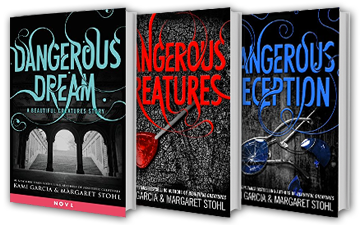
I get it. Do what works for YOU the writer. Thanks for the great post!
Great post! It would be so much easier if there were rules that you just had to follow in order to be a success. I want to be an up-at-5, twenty page outline, book-a-year writer. Unfortunately, I’m a write from 11-2am, seat-of-my-pants, not-sure-how-long-it’s-going-to-take type.
Thank you for posting this! I can be daunting when you hear about “The Rules” and think, “Oh, this is how all those great writers get their books written!” Because the subtext, in my mind at least is, “This is why I will never finish a novel that I’d be willing to share.” Which, I remind myself daily (or my critique partner does at any rate), is bologna. I think it makes more sense, intuitively, to write what you are passionate about. So thanks for giving me some hope!
And @cjomololu, I love that you are a “write from 11-2am, seat-of-my-pants, not-sure-how-long-it’s-going-to-take type.” That just made me smile!
I love your rules, those are rules to live by. The others, the typical ones that plagued your reader/writer friend, they are made to be broken. BEAUTIFUL CREATURES proved that my breaking those old rules and doing it brilliantly!
I just found your blog, I’m half way through my second novel and I have seen those rules many times in all my research. THANK YOU for posting your response to them, because quite frankly, it makes you scared to even put a thought on paper and show it to anyone else. It’s frightening enough to take the leap to tell people you are actually a writer without them looking at you like you are full of BS, I could do well without these “rules.”
Thanks for this awesome post.
I really enjoyed the novel. As a reader i really dont think that there is a certain way take a book should be written it all depends on the author(s) of the book. I’ve been through college and understand what the person was talking about but sometimes you can’t follow the rules cause thats when the reader gets bored with the book. I would know cause there have been many. I read about 4 to 7 books a week and i know what type and style of books i like and if the reader doesnt like the book then maybe they should try another style or type. But a writer should always stick to what they feels is right for the book. Like i said Beautiful Creatures was an excellent book but i perfer those types of books.
This is an awesome post!! You have no idea how close to home this has hit. I’m throwing the rules out the door and I’m going to write the way I want and how I want. I can already feel the excitement and joy of wanting to write come back again, just knowing I don’t have to follow any more rules!
I’m printing this out and sticking it on my wall, right next to my desk.